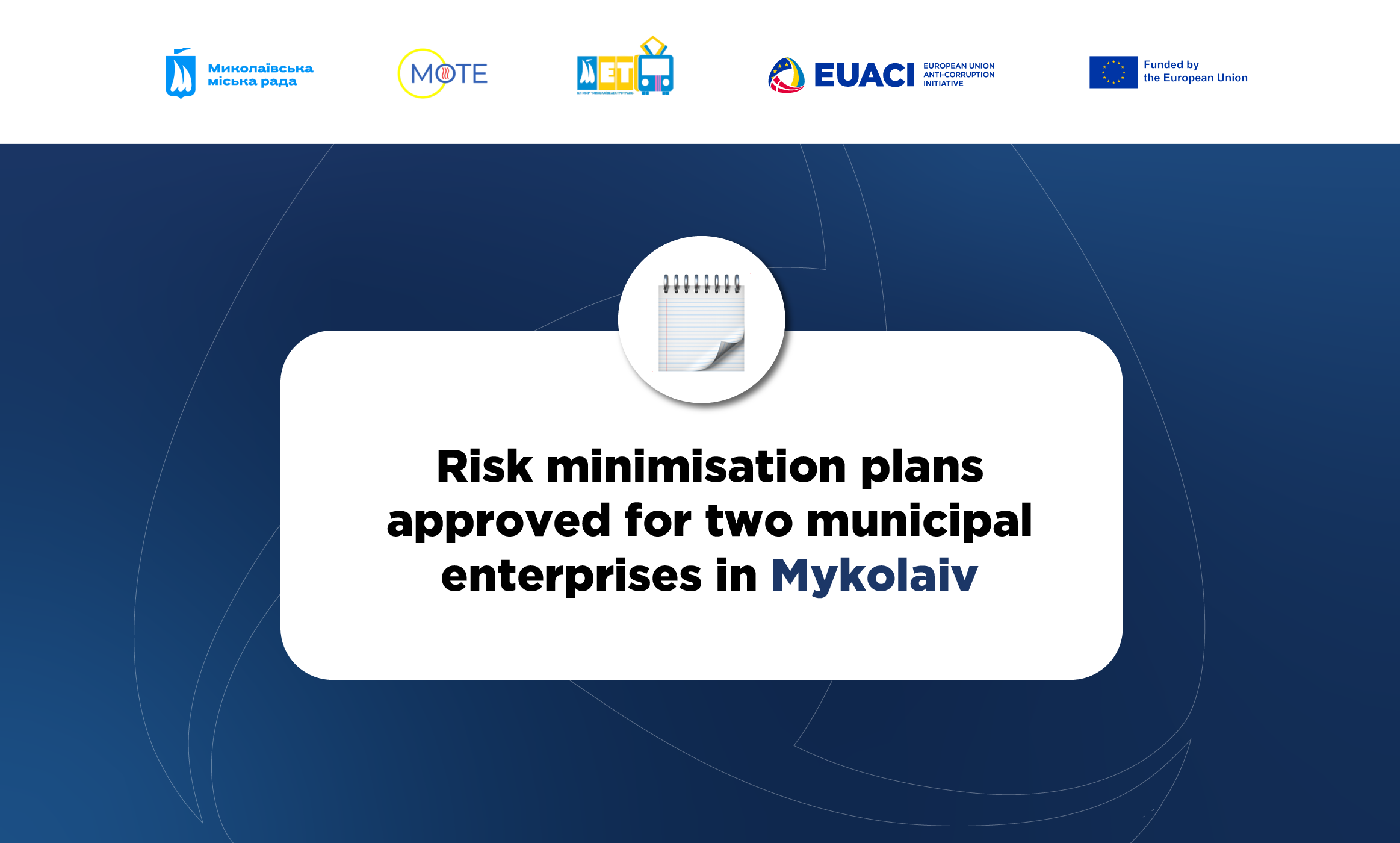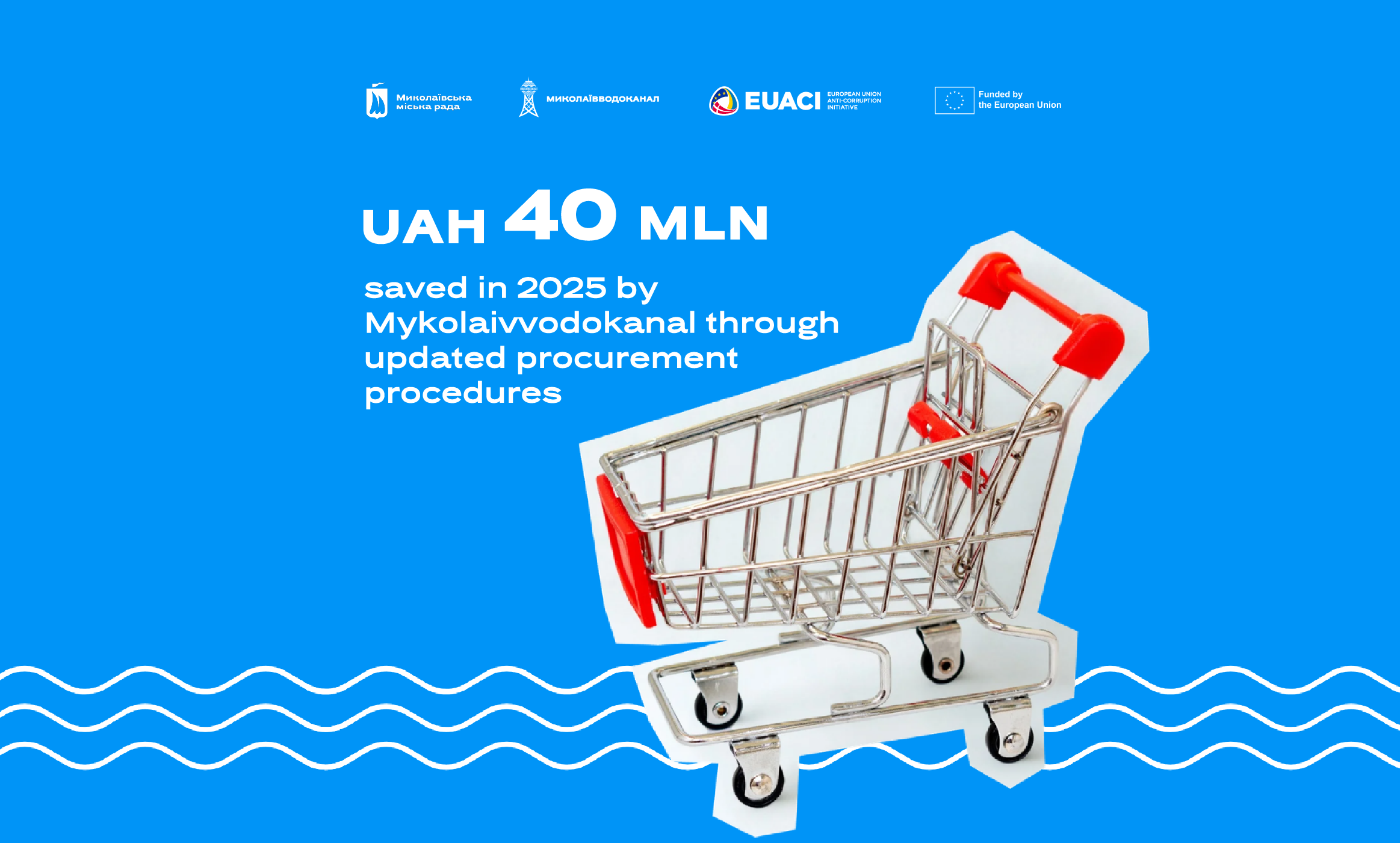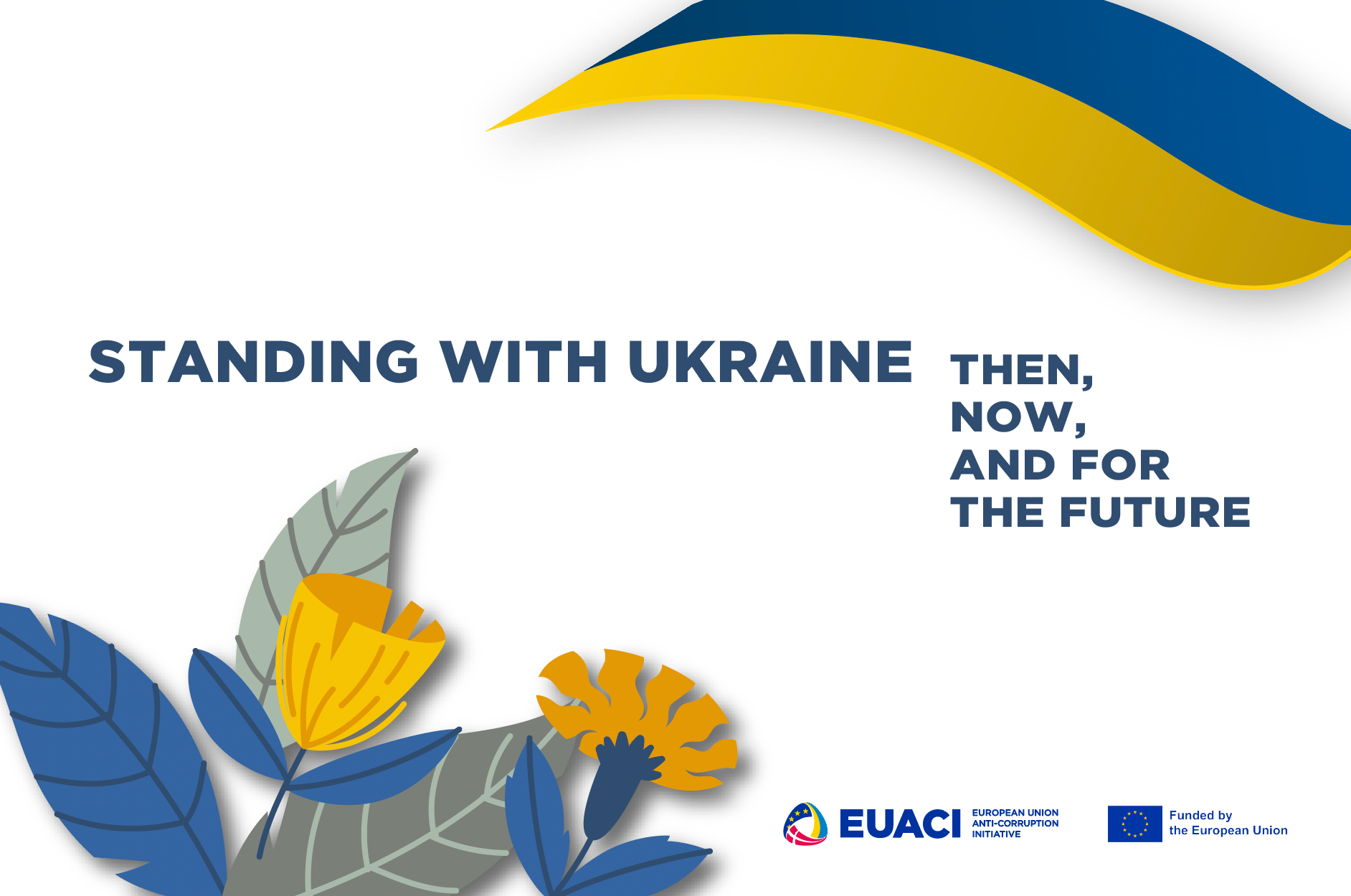A full-scale russian invasion changed the lives of the entire country and affected the work of state institutions. The anti-corruption agencies were ready to face these challenges: they successfully adapted their work to a new reality and continued to fight corruption. After all, effective anti-corruption efforts is what Ukraine is required as a potential candidate for EU membership.
The discussion “How do anti-corruption agencies work during the war?” was organized by the EU Anti-Corruption Initiative and took place on June 16, 2022. The attendees, representatives of Ukraine’s anti-corruption bodies, spoke of how their work had changed since the beginning of the invasion and summarized what had been done over more than 3 months.
Thus, during martial law, the National Anti-Corruption Bureau of Ukraine (NABU) and Specialized Anti-Corruption Prosecutor’s Office (SAPO) sent 12 indictments to court, the High Anti-Corruption Court (HACC) passed 12 sentences and sent almost UAH 500 million to the Armed Forces. The Asset Recovery and Management Agency (ARMA) tracked down assets in Ukraine and abroad for a total amount of more than USD 1 billion, and the National Corruption Prevention Agency (NACP) compiled a list of more than 12,000 sanctioned persons.
It is worth noting that dozens of employees of all anti-corruption institutions, without exception, are defending Ukraine with weapons in their hands.
More about the results of the activity of the anti-corruption institutions is in the video.


